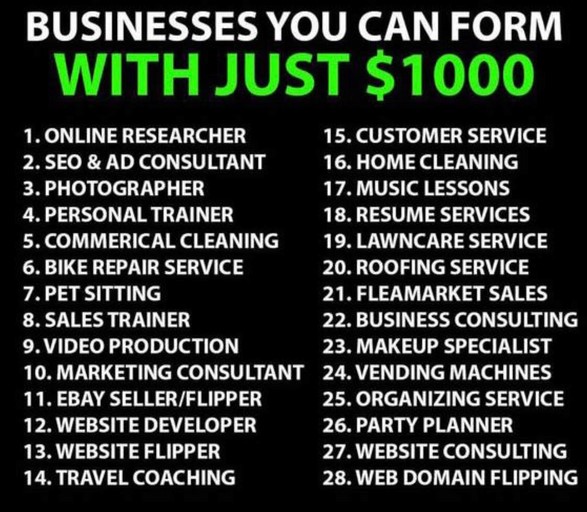Here at Small Biz Philly, we strive to highlight the rising entrepreneurial stars of the Delaware Valley in an effort to not only push their brands and services forward, but to potentially inspire you – our readers – to create your own.
But let’s say that you’re already inspired enough, but aren’t sure of where to start. Here, we will be listing some resources to get you started
Pick your market
Before you start your business, you need to decide exactly what business you are going to try to get into. This may sound like common sense, but you’d be surprised at how many people get tripped up at this point.
One notable example is Nintendo. These days, they’re know as the home of such famous gaming characters as Mario, Link and Samus Aran of Metroid fame:
However, one particular fact about this wildly-popular gaming company it that it got its start in 1889 making playing cards.
After capitalizing on this initial success, it went through four other business models between 1963 and 1968 before finally deciding to dip its toes into the video gaming market in 1974.
To make sure that this point really gets through to you, check out the article: “10 Great Companies that Started Out Selling Something Else” over at Retire@21.
If you’re still wondering what you might do with yourself in the entrepreneurial waters, here are some ideas for you here:
To be clear: We can’t guarantee than any of these will work for you, but now you can’t say that we just threw a bunch of motivational platitude at you without giving you any functional food for thought. If you have a computer with an internet connection – a pretty safe bet if you’re reading this article – you’ll have everything you need to get yourself started down a few of the paths above once you get your grand in hand.
In closing: let the moral of this part of the story be that you don’t necessarily have to hit it big in first market you decide to step into.
In fact, its all the more likely that you won’t.
Learn Your Craft
So let’s say that you know what you’d like to do for others in your future enterprise, but you kinds, sorta suck at it, IF you can even do it at all?
Well, that’s where you’ll want to check out one of the easily half-dozen of self-learning platforms available to you where – if you’re dilligent – you can learn just about anything you’d like from anywhere you want.
This isn’t a paid plug, but the platform of choice for your’s truly is Udemy:
- Pros
- Very robust selection of courses
- Run regular sales
- You buy a course, you own it for life
- Cons
- Course quality can be hit-or-miss as just about anyone can create a course
- Courses do have Q&A sections, but you will have to largely drive your own study process
- End of Course certificates might not get you very far on a resume or job board
If you’re looking for a platform with a bit more teeth to its reputation, then check out Udacity:
- Pros
- Courses are more in-depth and robust
- Completion certificates have more professional recognition
- Cons
- Courses are more expensive
- Amount of time you have to take a course is limited
Last but most certainly not least: For those of you who are fairly certain that you’ll want to do nothing but code in your private practice, you should consider looking at CodeCademy:
- Pros
- Very well structured coding courses
- Completion certificates are accepted and recognized in many circles
- Cons
- Platform is strictly dedicated to programming and development disciplines (Hence the choice of name)
- Course completion times are very strict
The above are just three examples of places you could goto to bootstrap yourself. When choosing where to invest your money to learn something, just keep in mind that when you get out into the real world, your confidence and competence will quickly outweigh your pedigree. A certificate of completion in Digital Marketing from Udacity may initially open some doors faster than one from a similar course on Udemy. But for the most part: nobody will care too much about where you learned how to do something as long as you convince and show them that you can do it right.
Earning Your Stripes
So, in order to prove to potential customers – typically called “Prospects” – that you know what you know, you’re going to need to need to have some examples of your work to show off – typically called a “Portfolio”. In order to generate a portfolio, you need actual customers – or “Clients” in some circles – to start and complete projects for. And so begins the go-around on the catch-22 carousel.
If you happen to be getting into a soft-skill – Graphic Design, Grant Writing, Coaching – that just requires to leverage knowledge and digital work, one way I found to get around that that may work for you is a site called Catchafire:
This is essentially a volunteer job board where you can setup a free account and bid to work on jobs and tasks posted by non-profits. The non-profits themselves have to pay to get onto the board as a means of separating the people really looking for help from the deadbeats looking for free work. The downside is that you won’t be paid outright for any of the jobs you get done here. The upside, however, is that if you do enough good work, you will not only walk away with a portfolio that you can parlay into paid work from other prospects, but you could also have a record of testimonials to put alongside that work to bolster your case when you’re ready to approach prospects that you expect to convert into paying clients.
Getting Your Papers In Order
If you’re at the point where you feel ready to open up shop, here are some resources that will point you in the right direction. The first one is directly from the Small Business Association itself:
As you quickly see: This site is built from the ground up to guide people on what business structures to form and how to do it. Its also managed and back by your US government. I’m sure that last statement will mean different things to different readers. But at least know that this site is as legit and upstanding as you personally believe the leaders of our nation to be.
If you’re interested in more local help – and hard dollars-and-cents numbers – Then you’ll probably want the Pennsylvania specific part of the website How to Start an LLC:
You’ll want to start at sba.gov to do some research of your own, but I know just enough about this piece of the puzzle to confidently afford you a little sage advice. There are essentially four types of business structures that you could setup for yourself coming out of the proverbial gate:
- Sole Proprietorship
- Limited Liability Company (LLC)
- S-Corp (Not a direct option, per-se, but you’ll see why when you do your research.)
- C-Corp
Chances are, you’re going to want the second one: LLC. A sole proprietorship wouldn’t cost you anything, but would open you up to too much trouble if you ever made a mistake parlaying your craft. The two “Corps” will likely be too costly and complex for whatever you’re likely to be up to at this initial stage of the small business game (Especially if you’re trying your hand at one of the suggestions above in the black box). You can always grow into one of those later from an LLC if you actually start to do that well and get that big.
The Wrap Up
To reiterate, neither I the author nor anyone else attached to this website can outright guarantee you that following any of this advice will garner you any entrepreneurial success. You should review the information put in front of you and find others to talk it out with before making any decisions. It is my hope that this article perhaps demystified the process for you a bit and inspired you to look deeper into it all for yourself.
This is a guest post by Yardell Perkins. Founder and Head Developer of Perkitech. An organization dedicated to helping individuals and small organizations with either creating or establishing their digital brands and presence.



















Recent Comments